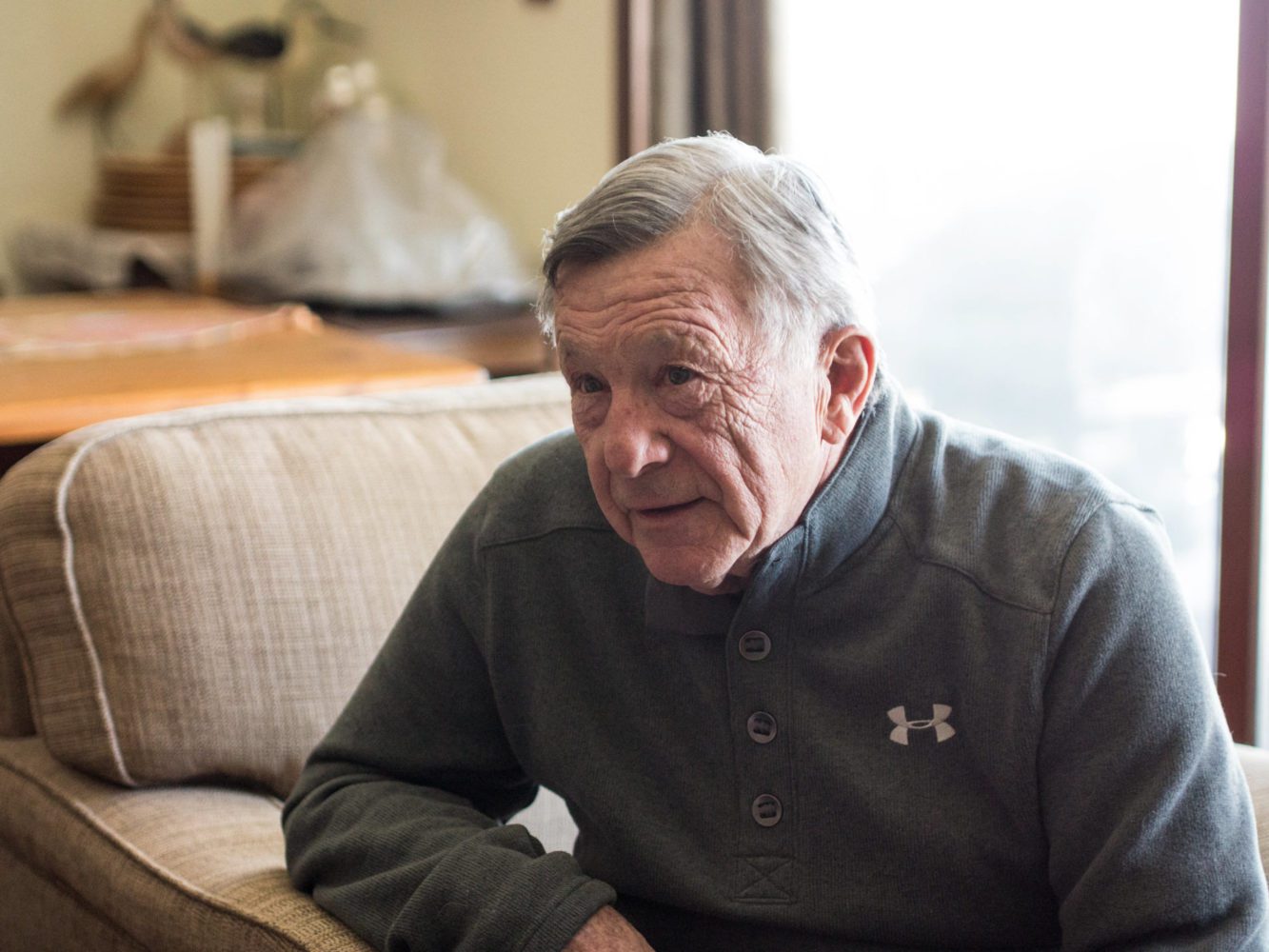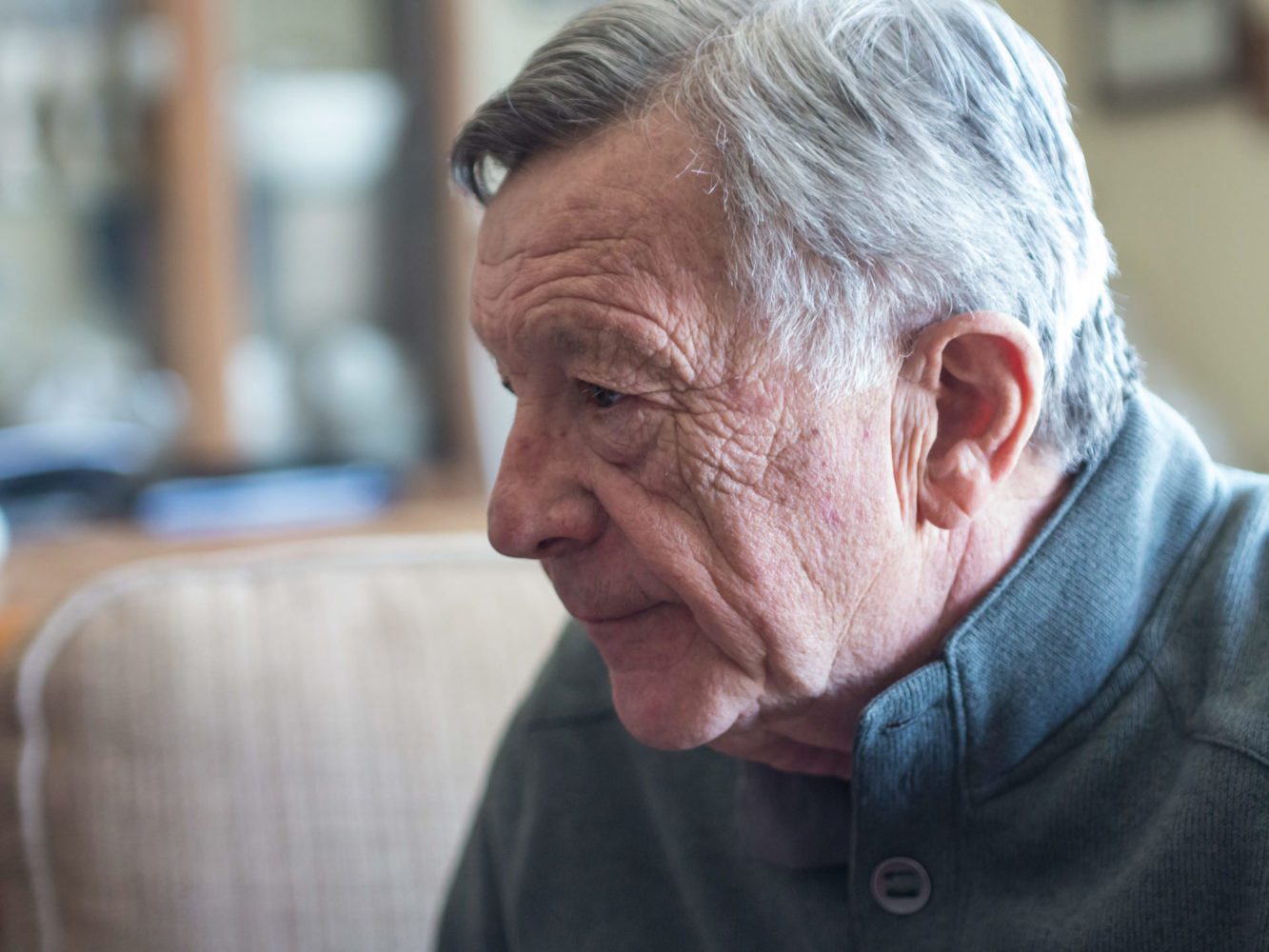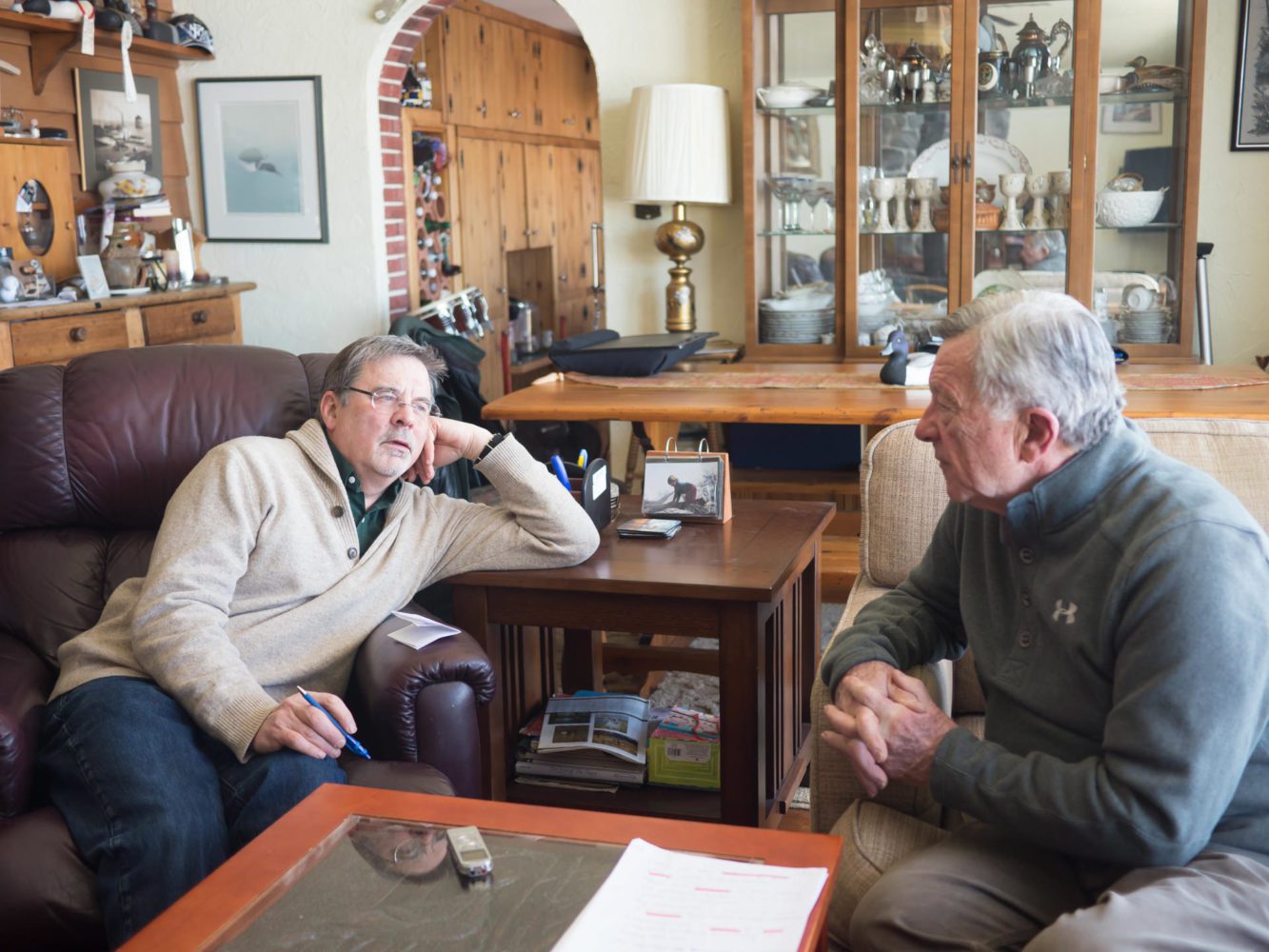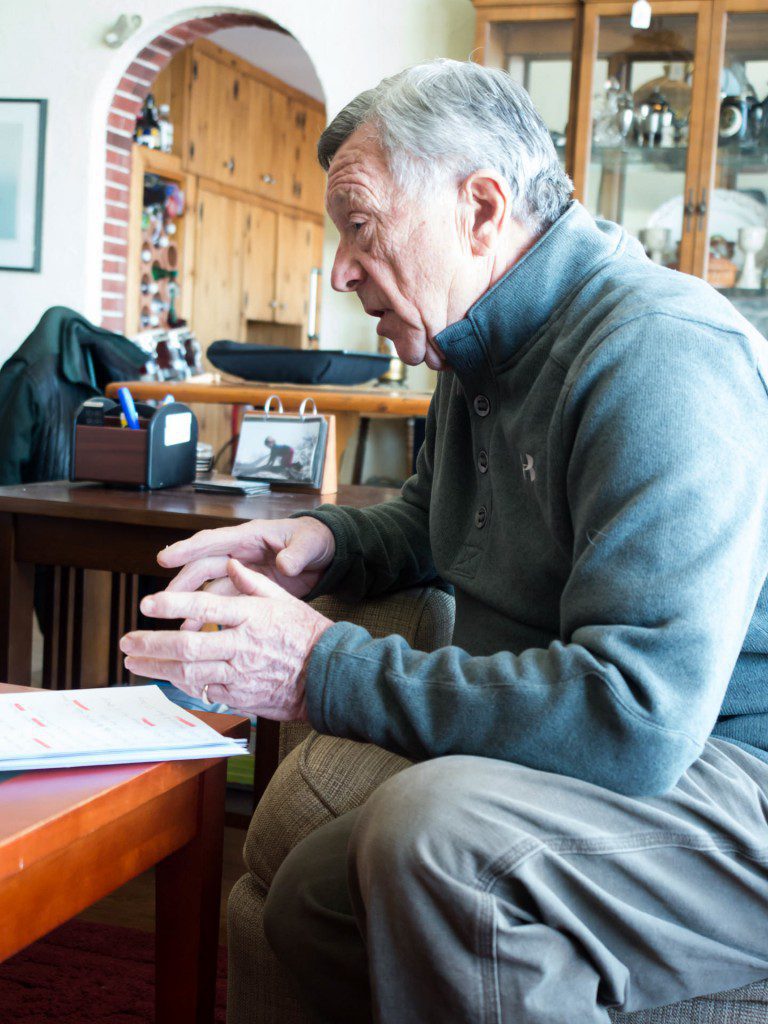George is a retired family doctor and geriatrician who talks about what it was like to go on the “other side of the gurney” when his wife of 53 years was diagnosed with rapidly spreading cancer.
“Catherine worked as a public health nurse her entire career, in addition to raising five kids.”
“We had a busy marriage for 53 years. Her first encounter with breast cancer was 25 years ago. At that time, she got through the system pretty quickly, from when the mass was found to when she had her surgery and radiation. She was followed every year by her surgeon and our family doctor, who did a physical exam and blood tests and an annual mammogram. Her surgeon saw her for her 25th anniversary. It was kind of a celebration because she had been free of cancer for so long.”
“Unfortunately, this time, they found a mass when they did the mammogram. She had a needle biopsy. We were called into the surgeon’s office and he told us that the biopsy had shown cancer cells. At the same time he regretted to tell us that he was no longer doing surgery and that she would have to be referred to another surgeon. And that’s when the wheels sort of came off. All of a sudden, we were on the other side of the gurney.”

“We decided to do a mastectomy as an outpatient procedure in the hospital. There was the pre-surgery physical and all that sort of stuff. We found that waiting lists were long. It was at least five weeks before she got the surgery and you worry in that time that the cancer is spreading. Surgeons and nurses were all very busy; so were ward clerks and secretaries. It felt impersonal. I don’t want to be negative, but sort of like government employees working in a busy office. And forms to fill out! So much for e-health! I don’t know how many times we told our story over and over and over again. Nobody seemed to record it so they could pass it on.”
“The day for surgery came, and off to the hospital we went. We had to be there for eight in the morning. Catherine was prepared and I was at her bedside. We waited and waited and waited until three in the afternoon when an anesthetist appeared and said that they had decided that it was too late in the day, so we’d have to come back another day. So we packed up and left.”
“When the surgery was done, they found a type of cancer that looked like it could easily spread. For that reason, we were given an appointment at the cancer clinic.”
The cancer clinic was sort of like an airport waiting room. It was huge! Cavernous. Long line ups and extremely busy. And we had to fill in all those forms again.
“I am sure they do great work at the cancer clinic. I certainly wouldn’t want to be negative about what they do and how hard they are working and what they accomplish. But from a user’s point of view, it wasn’t an easy process.”

“Catherine’s care became a bit of a problem. She started dropping things and got confused. She got so she couldn’t even feed herself. We hired a personal care worker who was absolutely wonderful. She was an angel sent from heaven. If anybody in this whole thing was great, it was her. I mean, she was just wonderful.”
“She had a strong bond with Catherine right from the start. She was like a daughter. I would come home and find her cleaning the house. She went above and beyond the tasks she was meant to do. And she was so effortless about everything. If Catherine spilled something and made a mess on the floor, she would never make an issue. She would quietly wipe it up and try to bring Catherine’s attention to something else. She worked to maintain her dignity.”

“Catherine deteriorated very, very quickly. And of course, being a doctor, I knew the cancer had spread to her brain. I won’t go into all of the details, but one weekend she became almost unconscious. I thought that maybe the best thing would be palliative care. So I phoned around, and the only way into palliative care was through the emergency department. Off to emergency we went, and that started a whole cascade of terrible events.”
“Certainly, the ambulance ride to the hospital and being admitted to emergency were bad. She became very confused in the emergency department. I mean, we wanted palliative care, we didn’t want emergency care! Somebody came from palliative care and said they could probably admit her within a few days, but he’d first need to see if there were beds. She got shuffled off to sort of a private room in emergency because things really didn’t look good. She died within 12 hours of going to emergency. The kids got to be there, and of course I was there.”
After Catherine had passed, I was at the bedside when a very seasoned emergency nurse who I’ve known for a long time came in. she said to me, ‘You can take your doctor’s hat off now.’
“That was one of the many lessons that come from this story. I think I had my doctor’s hat on all the time through that experience, and when I think back it’s probably hard to be a husband of a sick person when you are a health care person. You want to be able to control things. It was a very kind gesture on her behalf, to let me know I didn’t have to feel in control, and to give me that permission, to say, ‘Now you can behave like a grieving husband.’”

“Some people might say that because you were a well respected doctor in this community for many years, you probably got a better experience than the average person.”
“Well, I don’t know. I’ve been through some health problems of my own over the last couple of years and I haven’t found that I jumped the queue in any way shape or form. I don’t think I get any better treatment or acceptance into the system than other people in the waiting room. I’ve had to endure long waiting periods and I am waiting right now for an MRI, that has taken…well it was first ordered three months ago and they changed their booking system or something, and I still haven’t heard when it will get done.”
“Health care people react to the diagnosis of cancer the same as everybody else. There’s the same physical, emotional, spiritual…there’s all that mess that goes on in your mind. My kids went through the same experience. The kids all responded in their own ways, some of them quietly, some of them openly, but they all knew that mom was really sick and that someday they were going to lose their mom. One of the kids has been having terrible grief problems but over the last three months he has started to resurface.”
“I recently found Catherine’s hand-written recipes, which I’ve shared with friends and family. My wife was a phenomenal cook and, at one time, we raised pheasants. Catherine developed all kinds of different ways to cook pheasant. The favourite was a sour cream and white wine recipe. She would put so much passion into the meal. It was a very special event. I’m sort of an ‘eat to get it done and get back to work’ person but when Catherine cooked, her love for a good meal and her family was infectious. It was an occasion. It was a celebration. We still all get together quite often for a meal and we share these fond memories of her.”


The comments section is closed.